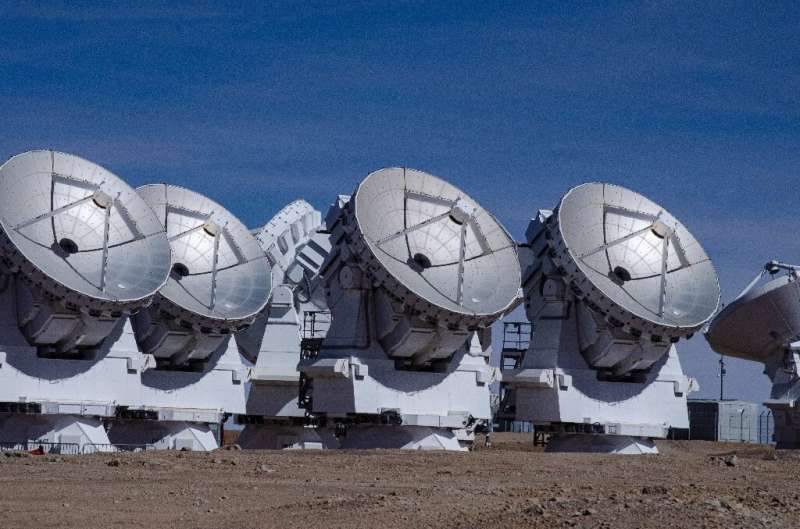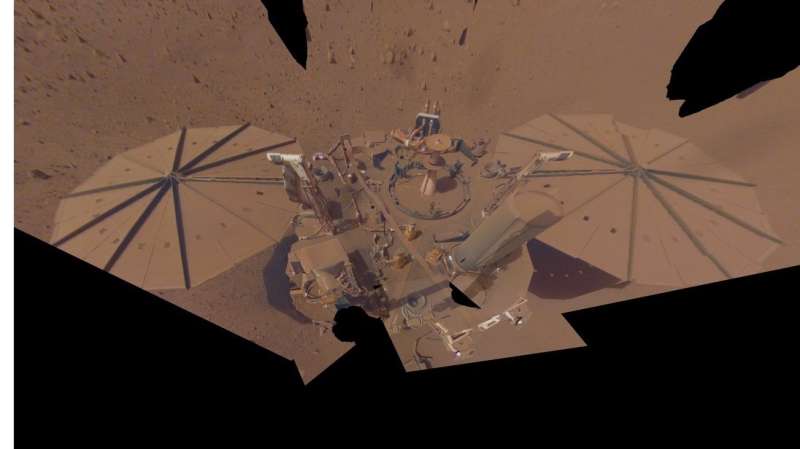
Copernical Team
ALMA observatory in Chile targeted by cyberattack

The ALMA space telescope in the Chilean Andes suffered a cyberattack over the weekend that has downed its website and suspended its work, the observatory announced Wednesday.
ALMA, the world's most powerful telescope for observing molecular gas and dust, studies the building blocks of stars, planetary systems, galaxies and life itself, according to the European Southern Observatory (ESO), its co-operator.
The attack Saturday on ALMA's computer systems did not compromise its powerful antennas or any scientific data, it said on Twitter.
The cyberattack forced the suspension of astronomical observations, left the observatory with limited email services, and its website still offline four days later.
"The threat has been contained and our specialists are working hard to restore affected systems," said the ALMA tweet.
"Given the nature of the episode, it is not yet possible to estimate a date for a return to regular activities," it added.
Space for the future: green steel, sweet air, happy plants

For decades, satellites have been instrumental in monitoring our changing climate and improving our understanding of the processes that drive it. But to achieve our climate goals and make Europe the first climate-neutral continent by 2050, we need ideas that take the next step and begin to use space technologies to actively prevent, slow, reverse or otherwise address these changes.
Ignite your potential! Apply now to the ESA Student Internship Programme

The 2023 internship opportunities at ESA have been published! Opportunities are open for one month and positions are available in engineering, science, IT, natural/social sciences, business and administration services. This is your chance to kick-off your experience in space!
NASA prepares to say 'farewell' to InSight spacecraft

The day is approaching when NASA's Mars InSight lander will fall silent, ending its history-making mission to reveal secrets of the Red Planet's interior. The spacecraft's power generation continues to decline as windblown dust on its solar panels thickens, so the team has taken steps to continue as long as possible with what power remains. The end is expected to come in the next few weeks.
But even as the tightknit 25-to-30-member operations team—a small group compared to other Mars missions—continues to squeeze the most they can out of InSight (short for Interior Exploration using Seismic Investigations, Geodesy and Heat Transport), they've also begun taking steps to wind down the mission.
Here's a glimpse of what that looks like.
Preserving data
The most important of the final steps with the InSight mission is storing its trove of data and making it accessible to researchers around the world.
CAPSTONE completes successful maneuver, teeing up Lunar orbit
 The CAPSTONE spacecraft successfully completed a trajectory correction maneuver on Thursday, Oct. 27, teeing up the spacecraft's arrival to lunar orbit on Nov. 13.
CAPSTONE is no longer in safe mode following an issue in early September that caused the spacecraft to spin. The team identified the most likely cause as a valve-related issue in one of the spacecraft's eight thrusters.
Th
The CAPSTONE spacecraft successfully completed a trajectory correction maneuver on Thursday, Oct. 27, teeing up the spacecraft's arrival to lunar orbit on Nov. 13.
CAPSTONE is no longer in safe mode following an issue in early September that caused the spacecraft to spin. The team identified the most likely cause as a valve-related issue in one of the spacecraft's eight thrusters.
Th Meteorite impacts on the surface of Mars provide new details of the planet's crust
 Data from two meteorite impacts on Mars recorded by NASA's InSight spacecraft provide new insights into the structure of the Martian crust. Previously, researchers had observed many quakes whose waves spread from the epicentre of a quake through the interior of the planet. Since then, they had been hoping for an event that would also generate waves traveling along the planet's surface.
On
Data from two meteorite impacts on Mars recorded by NASA's InSight spacecraft provide new insights into the structure of the Martian crust. Previously, researchers had observed many quakes whose waves spread from the epicentre of a quake through the interior of the planet. Since then, they had been hoping for an event that would also generate waves traveling along the planet's surface.
On AIR lofts heavy payload balloon into near-space height
 A high-altitude scientific balloon containing 1.2-ton payloads was lifted into the sky and reached an altitude of 30km in a demonstration test that helped validate the payload capacity of a near-space balloon platform.
The flight test was conducted in northwestern China's Qinghai Province on September 30, 2022 by a research team from the Aerospace Information Research Institute (AIR), Chin
A high-altitude scientific balloon containing 1.2-ton payloads was lifted into the sky and reached an altitude of 30km in a demonstration test that helped validate the payload capacity of a near-space balloon platform.
The flight test was conducted in northwestern China's Qinghai Province on September 30, 2022 by a research team from the Aerospace Information Research Institute (AIR), Chin China's 'Palace in the sky' space station complete after successful launch
 China successfully launched the third and final module needed to complete the Tiangong Space Station.
The Chinese National Space Administration announced its Mengtian module arrived in low Earth orbit after a 13-hour voyage. Mengtian was carried to orbit by a Long March 5B, which was designed specifically to launch the Tiangong modules into space.
Mengtian, which translates to "Dream
China successfully launched the third and final module needed to complete the Tiangong Space Station.
The Chinese National Space Administration announced its Mengtian module arrived in low Earth orbit after a 13-hour voyage. Mengtian was carried to orbit by a Long March 5B, which was designed specifically to launch the Tiangong modules into space.
Mengtian, which translates to "Dream Sidus Space engages Dawn Aerospace to implement propulsion technology into LizzieSat
 Sidus Space, Inc. (NASDAQ:SIDU), a Space-as-a-Service company focused on mission critical hardware manufacturing combined with commercial satellite design, manufacture, launch, and data collection, announced agreement with Dawn Aerospace ("Dawn") to implement its green, chemical propulsion technology into LizzieSat.
Among the novel characteristics of Sidus Space's proprietary LizzieSat is
Sidus Space, Inc. (NASDAQ:SIDU), a Space-as-a-Service company focused on mission critical hardware manufacturing combined with commercial satellite design, manufacture, launch, and data collection, announced agreement with Dawn Aerospace ("Dawn") to implement its green, chemical propulsion technology into LizzieSat.
Among the novel characteristics of Sidus Space's proprietary LizzieSat is How scientist developed an intelligent fuzzy logical control to stabilize solar sail?
 Solar sail, a form of longevous spacecraft without propellant demand, attracts numerous aerospace researchers' attention. Its prolongable peculiarity enables its tremendous potential in diverse interplanetary missions. Due to the harsh space environment, it is inevitable that the spacecraft with long time on-orbit suffers the performance degradation and accident. Especially, the force model will
Solar sail, a form of longevous spacecraft without propellant demand, attracts numerous aerospace researchers' attention. Its prolongable peculiarity enables its tremendous potential in diverse interplanetary missions. Due to the harsh space environment, it is inevitable that the spacecraft with long time on-orbit suffers the performance degradation and accident. Especially, the force model will 































